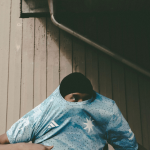
Closed stores, full stocks and postponed drops
How the pandemic affected the sportswear market
April 2nd, 2020
As we had already explored, Coronavirus has had a lethal impact on any type of business, leaving even the big sports brands displaced, triggering a series of chain reactions that have affected even the smallest brands and different companies.
Three weeks ago, UEFA announced that EURO2020 will be postponed for a year due to the Coronavirus pandemic, leaving the national associations a faint hope to be able to complete their championships - albeit behind closed doors - which, at this point, should not plus respect the deadline agreed on June 30th.
Together with the European Championship, Copa America and the Olympics will also be postponed, and it is quite understandable how all this will cause a sharp drop in sales of national kits; there is talk of sales that could be recovered next year but, due to the long-term planning that now dominates company policies, it will be difficult to cover this huge hole without leaving any aftermath.

In most countries, all stores not considered essential necessities have been closed and, of course, also the stores of adidas, Nike and Puma. Online shopping is still possible - given that delivery from warehouses to the end user has not been blocked - but, if the pandemic is not short-lived, it will be possible to witness a scenario in which even the stocks will remain full of unsold goods that would cause a temporary blockage of production.
The pandemic has also hit the stock markets heavily where the share prices of almost all the companies have collapsed and among these also those of the three giants of sport mentioned above who have lost almost 50%; this means that the companies have almost lost half of their previous market value, bringing sponsored and publicly traded companies, such as Borussia Dortmund and Juventus, into the abyss.

As we anticipated here, with the 19/20 sports season that will be extended beyond the set deadline, we could see some switches of kit suppliers that occur late in the season: the example we had made was that of Liverpool, whose contract with New Balance will expire on May 31; if the Premier League season lasts until mid-June, Liverpool will switch to Nike shirts during the season.
It was a simple assumption given that, news of a few days ago, New Balance and Liverpool decided to extend their sponsorship contract until the end of the championship.
On the other hand, for those leagues that start the season later than the European championships, there have already been some difficulties for the delivery of material for the teams: for example, Oklahoma City Energy FC, the USL team sponsored by the USL adidas, has had to release first his third kit compared to the home and away shirt that were not delivered on time. Another example in Europe - equally irrelevant but equally valid - is Düsseldorf, which has had some delivery problems with an imminent special edition jersey that has not yet been released.
However, all that concerns the 2020/2021 uniforms is not verifiable for now: we only know that the big brands begin production for the following season around March and almost all have production plants in the Far East, including China: if you think about as far as these countries have been affected by the virus, it is easy to think that even the production timeline could be delayed which would lead to a not indifferent shift in deliveries to companies and to a consequent postponement of the official launches of the uniforms.













